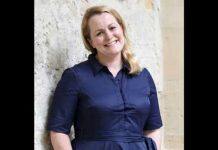LSE will take part in a major research programme, awarded £2.8 million by the Nuffield Foundation, to improve the lives of children and families by better understanding their needs and experiences.


Over the next five years, Professor Leon Feinstein, Director of the Rees Centre at the University of Oxford, will lead this innovative collaboration between local authorities and universities to transform how information about and from children and families is gathered, interpreted and used in child and family social policy at both local and national level.
The project will focus on children and families who need additional support from local authority children’s services, who are often the most vulnerable and disadvantaged in society. For example, this will include children and families referred to children’s social care services; younger children who need help to have a good start at school; and children in care and young people leaving care.
Statistical or ‘administrative’ information about children and families – commonly known as data – can improve practice and policy, but there are gaps and complexities in how this information is used. Other types of information, particularly the views and expertise of children and families, are vitally important. This project aims to ensure children’s and families’ voices, and the views of practitioners, are heard and used to improve practice, services and policy.
The project includes five Local Sites. Greater Manchester, Oldham, Rochdale, North Yorkshire and Hampshire local authorities will work with academics from Oxford University, the University of Sussex, LSE, University College London and Manchester Metropolitan University to build capacity and understanding about how to better use administrative data, children and families’ voices and information from practitioners to improve services.
Researchers will collaborate with children, young people, parents, carers, professionals and policymakers to understand and shape how information can be used ethically and effectively. Local Sites will also explore how the use of these different types of information can be co-designed with children and families, and how to support sustainable learning and change. The project has not yet been named, as the intention is to include children and families and practitioners in deciding the name.
A series of workshops, webinars and podcasts will share learning with all those working with children and families, including researchers, practitioners and managers, and policymakers. Academic thinking in this field will also be shaped by a range of research outputs. A Learning Network, run by Research in Practice, will bring together 20 local authorities to test out the findings from the five Local Sites and to develop learning materials to support better information use across England.
Tim Gardam, Chief Executive of the Nuffield Foundation, said: “We established the Nuffield Foundation’s Strategic Fund to encourage ambitious, multi-disciplinary projects that would re-frame the social policy agenda and improve people’s lives. This project stood out for its originality and intent to work closely on the ground with local government and practitioners, as well as children and families. It aligns with our focus and priorities across the Foundation’s interests in Education, Welfare and Justice. By transforming the quality and use of information and data by local authorities, this project has real potential to reduce inequalities and improve the lives of the most disadvantaged children and their families.”
Professor Leon Feinstein, Principal Investigator and Director of the Rees Centre at Oxford University, said: “We are thrilled to be leading a project with such a strong and committed group of local authorities, academics, and leaders in social policy. The Nuffield Foundation has provided us with a tremendous opportunity to bring evidence into policy and practice in a new way and to really support improvement to the lives and experiences of children and families. If we get this right, we can make sure data and information are used for and with people, rather than, as so often is the case, for and by government.”
Dr Polly Vizard, Associate Director of the Centre for Analysis of Social Exclusion (CASE) at LSE and a Co-Investigator on the project, said: “We’re really excited to be engaging with local authorities to understand how they are using existing information on children and families to guide their policies and services, and to explore whether the conceptual and measurement frameworks we have developed in CASE can help to improve on existing practice”.







































